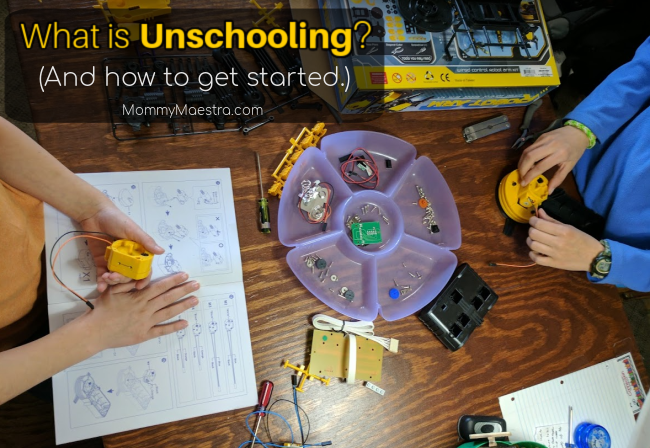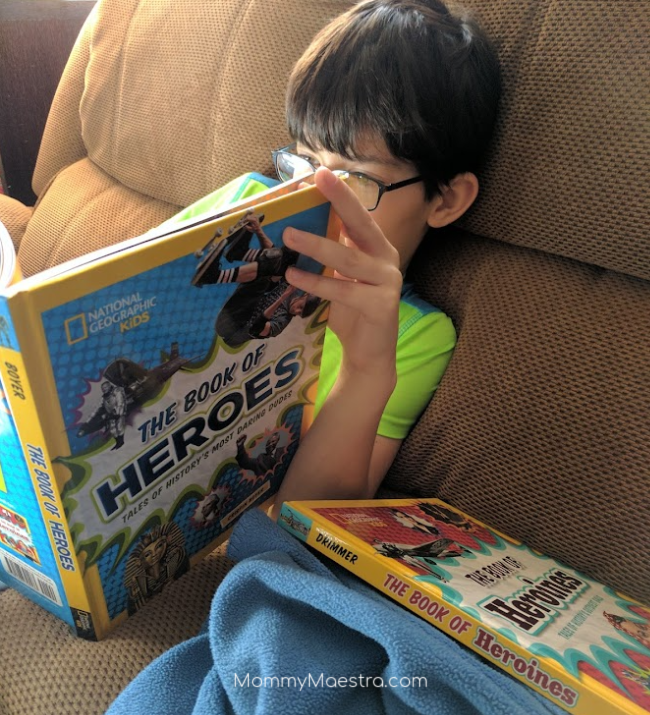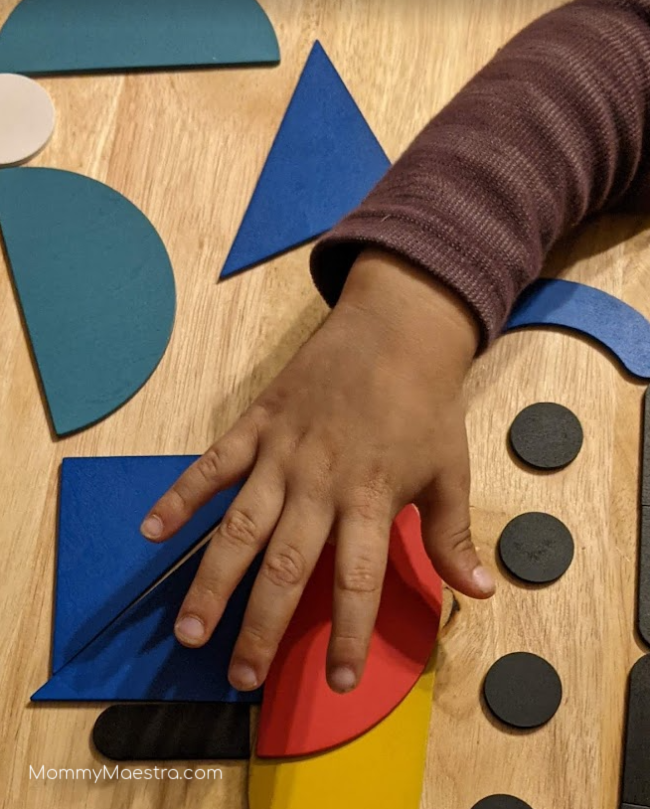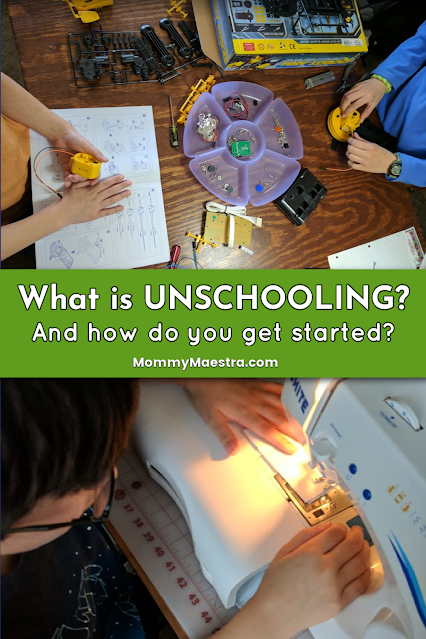
This post is part of a new series that dives deeper into the different homeschooling methods that families follow. For a brief overview of the different styles, check out my post on homeschool method descriptions.
Parents often start their homeschooling days by giving their children a schedule with specific subjects to learn such as math, science, and history. After attempting to do this, the parents recognize that their child isn't interested in any or all of them.
At this point, many homeschool parents begin to question themselves thinking perhaps they don't have the ability to teach their children and their child is struggling in school.
But what if you were to step back and take a look at things from a different perspective? What if you didn't see it as not being able to teach your kids but that they just weren't ready for those subjects? Or maybe they just weren't ready to learn in the style you were using?
This is when many parents begin to think outside of the box. They start looking at other options for homeschool education, such as unschooling.
At this point, many homeschool parents begin to question themselves thinking perhaps they don't have the ability to teach their children and their child is struggling in school.
But what if you were to step back and take a look at things from a different perspective? What if you didn't see it as not being able to teach your kids but that they just weren't ready for those subjects? Or maybe they just weren't ready to learn in the style you were using?
This is when many parents begin to think outside of the box. They start looking at other options for homeschool education, such as unschooling.

What is the unschooling method?
Unschooling is a form of homeschooling in which students are given more freedom to learn on their own terms. They may pursue whatever interests they have and ask questions when things don't make sense, rather than following specific curriculum plans with set lessons for each subject area like many other forms of schooling do.
Homeschoolers who unschool their children focus more on the experimental process of learning and becoming educated rather than on "doing school." Unschooling is an active method for these learners as they are given control over what will be learned in each particular lesson or project.
The child decides how much information he/she wants to absorb from each source; this sometimes leads them outside traditional avenues where knowledge has been prescribed by teachers without discussion starters such as lectures.
Unschooling is a natural curiosity-driven way of homeschooling. It means not placing artificial time constraints on your child like the introduction of certain subjects at specific ages, or structuring their day in any particular way that might be familiar to them from school settings. Instead, unschooled kids explore everything they are interested in without restrictions.

How to Start Unschooling
Now that I shared what unschooling is all about, you're probably wondering how you can start unschooling your children. The first step is to determine if this process is allowed in your state.
While homeschooling is legal in all 50 states, some states are stricter about the approach to education than others. It's best to research your state's homeschool laws at HSLDA.org before making the switch to unschooling.
Once you know that your state is a region that allows unschooling to work for your family, it's time to get started unschooling:
- Research and talk to other families who unschool to start to get feel for options that work for other children.
- Talk to your children to see what goals and interests they have. Use this information to help mold your first unschooling attempt.
- Make a choice if you'll incorporate any mainstream homeschool education options, such as workbooks or formal curriculum-based studies.
- Start with an unschooling method that feels right for your family.
Do unschoolers learn math?
Yes, unschoolers do learn math. Math is a part of everyday living and experience and can be integrated into your child's interest areas.
For example: If your child enjoys cooking, you could work together to make up recipes and do measurements together as well as follow specific recipes provided in books or online.
You could also introduce counting by completing activities that involve counting out objects, such as silverware for a picnic.
Is it possible to unschool through high school?
Yes, many unschoolers continue their learning right through high school. Although some homeschooling families may switch educational methods during the children's high school years if the child is interested in attending a university or college.
Unschooling is a less formal way to make certain that your children get an education without the stress that comes from the other traditional methods of learning. Some people hear the term “unschooling” and think that the children aren’t being educated. This thought process is incorrect.
Children are always learning. They learn from real experiences, rather than through artificial means of introducing subjects to them during specific times periods at school.
Many families who unschool use the relaxed educational approach as a way to teach their children about everything they need to know without feeling restricted by time or curriculum restraints.

Is unschooling a good idea?
In all honesty, only you can determine if unschooling is right for your family. However, if your children are struggling with traditional methods of homeschooling or in-person schooling then it may be time to try the unschooling approach.
One of the most popular reasons for unschooling is to see your children thrive. Children are curious by nature, which means they will soak up everything around them if they are allowed to do so. This type of learning can help unleash their creativity and potential in a way that many traditional schools cannot offer.
Just to recap unschooling is a natural curiosity-driven method of homeschooling that encourages your children to learn through interest-based methods. The unschooling method may change throughout the duration of your child's years of homeschooling, but one fact remains true; unschooled children lead the way for their parents to encourage a love of reading, learning, and living through everyday experiences.
Want to find this post again? Pin it!

